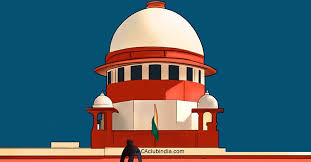The learned Judge dismissed a petition[CRL. M.C. 2845/2010] under section 482 of the Code of Criminal Procedure, 1973 (“Cr. PC”, hereafter) presented by the appellant as not maintainable (Para 1)
Were “jointly and severally responsible for writing, sending, publishing the above said letters containing malicious and defamatory statements and imputation against the complainant” and consequently summoned the three accused for offences under sections 500/107/34, Indian Penal Code (Para 2)
These letters allege that the complainant, through illegal and wrongful methods, persuaded AAI to award the tender to Rosenbauer. Enumeration of the contents of such letters is avoided, lest the same prejudices the rights of the parties. (Para 3(iii))
On 30th April 2009, the complainant addressed a legal notice to the appellant and Aggarwal inter alia alleging that the contents of the aforementioned four letters of complaint given to the concerned authorities were defamatory. (Para 3(v))
It was in this context that the complainant lodged the complaint before the Trial Court alleging criminal defamation as well as its abetment under sections 107, 499, and 500 read with section 34 of the IPC against the accused. (Para 3 (vi)
The learned Judge erred in not considering that a writ petition instituted on behalf of the appellant cannot constitute an ingredient of an offence under section 499, IPC, since documents filed in civil cases are protected by an “absolute privilege” and are also covered under the Fourth Exception to section 499, IPC. (Para 5(ii))
By a detailed order dated 10th December 2010, the same learned Judge (who dismissed the petition of the appellant) noted that Aggarwal was taking defence under exceptions to section 499 IPC and that “the Court cannot take the defence of the petitioner into account to quash the summoning order or to quash the complaint”. Based on such finding, the learned Judge rejected the challenge. (Para 8)
Having heard learned counsel appearing for the appellant and the complainant and on consideration of the materials on record, we are of the view that the following questions of law emerge for an answer:
i. Whether, while considering a private complaint alleging defamation, the Magistrate before summoning the accused ought to confine himself to the allegations forming part of the petition only or he may, applying his judicial mind to the exceptions to section 499, IPC, dismiss the complaint holding that the facts alleged do not make out a case of defamation?
AND
ii. Whether and, if at all, to what extent, is it open to the High Courts to exercise inherent power saved by section 482, Cr. PC to quash proceedings for defamation by setting aside the summoning order upon extending the benefit of any of the Exceptions to section 499, IPC? (Para 13)
After answering the aforesaid questions, we wish to answer the following questions emerging from the facts and circumstances of the appeal:
a. Whether the appellant has made out any case for interference with the judicial orders of the Magistrate and the learned Judge under challenge?
b. Whether a company can be prosecuted for defamation when the alleged defamatory statements are made not by it (the company) but by its authorised agent?
c. Depending on the answers to the above, whether the benefit of the Fourth Exception to section 499, IPC, as claimed, should be accorded to the appellant? (Para 14)
Adverting to the aspect of exercise of jurisdiction by the High Courts under section 482, Cr. PC, in a case where the offence of defamation is claimed by the accused to have not been committed based on any of the Exceptions and a prayer for quashing is made, law seems to be well settled that the High Courts can go no further and enlarge the scope of inquiry if the accused seeks to rely on materials which were not there before the Magistrate. (Para 46)
Based on our understanding of the law and the reasoning that we have adopted, issue of process under section 204 read with section 200, Cr. PC does not ipso facto stand vitiated for non-consideration of the Exceptions to section 499, IPC unless, of course, before the High Court it is convincingly demonstrated that even on the basis of the complaint and the materials that the Magistrate had before him and without there being anything more, the facts alleged do not prima facie make out the offence of defamation and that consequently, the proceedings need to be closed. (Para 47)
However, if from evidence led it is established that the authorised agent had issued defamatory statements with the consent of the principal or that the principal, without giving consent, had due knowledge of such defamatory statements, yet, did not caution/reprimand the agent for doing so or had not disowned the statements so made, there is no reason why a prosecution for defamation should be nipped in the bud on the specious ground that an authorised agent is supposed to act lawfully and not unlawfully. (Para 56)
Turning to question (c), it is for the appellant to demonstrate before the Trial Court that the Fourth Exception is attracted, or plead any other defence, and discharge its burden of proof in respect thereof during the course of the trial. This, in our opinion, is not the right stage to opine one way or the other and, therefore, we leave it open for being decided by the Trial Court in accordance with law. (Para 57)
Having answered all the questions, what is left for us is to dismiss the appeal which we hereby order. The appeal is dismissed, with the result that the interim order shall stand vacated forthwith. There shall, however, be no order for costs. (Para 58)
SUPREME COURT OF INDIA
2023 STPL(Web) 313 SC
[2023 INSC 880]
M/S Iveco Magirus Brandschutztechnik Gmbh Vs. Nirmal Kishore Bhartiya & Anr.
Criminal Appeal No. 1959 of 2012-Decided on 5-10-2023
https://stpllaw.in/wp-content/uploads/2023/10/2023-STPLWeb-313-SC.pdf







